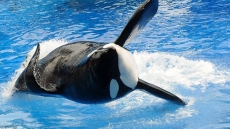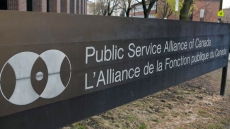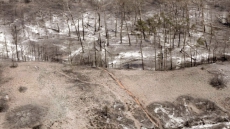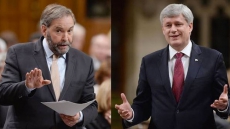VANCOUVER — British Columbia's Forests Minister says soaring temperatures and paltry rainfall have pushed the province's most heavily populated region to the highest alert level on the drought scale.
Steve Thomson said the Lower Fraser and the south coast areas have been upgraded to drought level four, which is defined as extremely dry.
"In the coming days and weeks it is likely conditions across the province will become drier," Thomson said Wednesday.
If the situation gets bad enough the province may restrict personal water use and temporarily suspend commercial water licences in affected watersheds, said Wenda Mason, a provincial water management official.
So far, no regulations have been introduced as the government has encouraged residents to voluntarily curtail water consumption.
Mason said 10 millimetres of rain is forecast for northeastern B.C., but that would hardly be enough to end the drought conditions.
The only other level-four drought region in the province is Vancouver Island, where concern is focused on the southern part of the region.
Low water levels and high temperatures have also resulted in fishing restrictions, with closures being imposed or considered for nearly 100 rivers across the province, mostly on southern Vancouver Island and the central Interior.
"Under these conditions fish seek cold-water refuge areas and become vulnerable," said Mike Ramsay, a provincial fisheries manager with the Forests Ministry. "Sport fish, such as rainbow trout, could have high mortality rates when caught in water above 20 degrees due to stress."
A fish kill was reported in the Similkameen River on July 1, and an investigation revealed the incident was probably related to water temperature, Ramsay said.
Dry conditions are also contributing to wildfires across the province, though the total number of blazes dropped to 175 on Wednesday from 200 a day earlier.
Of the 10 fires that started on Tuesday, two were human caused.
"This is a big concern to us," said Navi Saini of the BC Wildfire Service. "These fires are preventable and they do tie up valuable, finite resources."
But she said an abnormally high level of lightning early in the season has caused a disproportionate number of wildfires since April 1.
Since then, nearly 1,100 fires have razed about 2,900 square kilometres of land, costing the province about $120 million, or almost double its annual firefighting budget.
A campfire ban remains in place across the province, with the exception of Haida Gwaii and the fog zone, a narrow strip along the extreme west coast of Vancouver Island.




